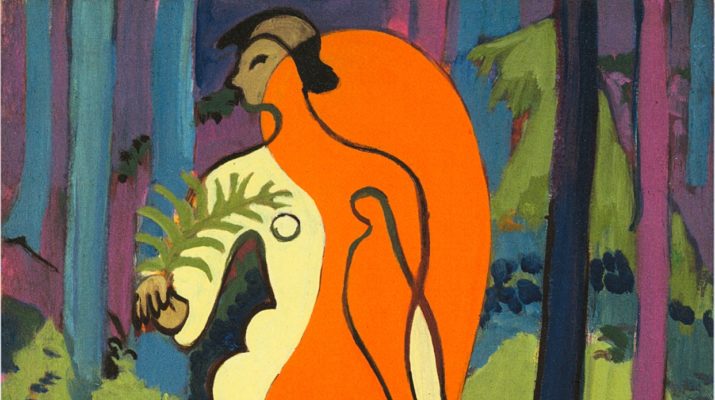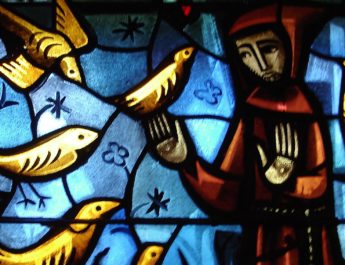Proverbs 1:1-7 & 3:1-8
Narrative Lectionary
1:1 The proverbsA of SolomonB sonC
A “proverbs” = mashal. From mashal (to compare, speak in a proverb or riddle – to speak in allegory or liken). This is proverb, parable, taunt, discourse, maxim, adage, poem.
B “Solomon” = Shelomoh. From shalam (to be complete or sound; to have safety mentally, physically, or extending to one’s estate; so, if these things are safe and complete, the implication is that one would be friendly; and, if being friendly, one would make amends and that friendship would be reciprocated). This is Solomon or Shelomoh, meaning “peaceful.” It is the same word as the Hebrew word for peace – shalom.
C “son” = ben. From banah (to build or obtain children). This is son, age, child. It is son in a literal or figurative sense.
D “David” = David. From the same as dod (beloved, love, uncle); the root may mean to boil, which is used figuratively to describe love. So, this implies someone you love such as a friend, a lover, or a close family member like an uncle. David’s name likely means something like “beloved one.”
E “king” = melek. From malak (to be or become king or queen, to rise to the throne, to be crowned; by implication, to take counsel). This is king or royal.
F “Israel” = Yisrael. From sarah (to persist, exert oneself, contend, persevere, wrestle, prevail) + El (God or god). This is Israel, meaning God strives or one who strives with God; new name for Jacob and for his offspring. This refers to the people and to the land.
2 For learningG about wisdomH and instruction,I
for understandingJ wordsK of insight,L
G “learning” = yada. This is to know, acknowledge, advise, answer, be aware, be acquainted with. Properly, this is to figure something out by seeing. It includes ideas of observation, recognition, and care about something. It can be used causatively for instruction, designation, and punishment.
H “wisdom” = chokmah. From chakam (to be wise or teach wisdom; this is wisdom in thought, word, or action). This is wisdom, wit, or skillfulness.
I “instruction” = musar. From yasar (to discipline, correct, train, teach, punish; literally with blows, but figuratively using words). This is discipline, a correction a warning, or an instruction.
J “understanding” = bin. This is to discern, consider, attend to. It refers to distinguishing things in one’s mind or, more generally, to understand.
K “words” = emer. From amar (to say, answer, challenge). This is something that is said – a word, saying, speech.
L “insight” = binah. Related to “understanding” in v1:2. From bin (see note J above). This is understanding, wisdom, or discernment.
3 for gainingM instruction in wise dealing,N
righteousness,O justice,P and equity;Q
M “gaining” = laqach. This is to take, accept, carry away, receive. It can also have the sense of take a wife or take in marriage.
N “wise dealing” = sakal. This is to consider or be prudent and so it can mean to instruct or be an expert. It can also mean dealing prudently, which implies success and prospering. This verb presumes intelligence of the subject. In one form of the verb, it can mean laying cross-wise.
O “righteousness” = tsedeq. This is rightness, righteousness, vindication. It is everything that is just or ethical. That which is right in a natural, moral, or legal sense. It also includes just weights (i.e. true weights). Figuratively, this is justice, righteousness, equity – even prosperity.
P “justice” = mishpat. From shaphat (to judge, defend, pronounce judgment, condemn, govern). This is a verdict or formal sentence whether from humans or from God. It includes the act of judging as well as the place that judging takes place, the suit itself, and the penalty. Abstractly, this is justice, which includes the rights of the participants.
Q “equity” = meshar. 19x in OT. From yashar (to be straight, right, even, agreeable). This is evenness, straightness, prosperity, or uprightness.
4 to teachR shrewdnessS to the simple,T
R “teach” = natan. This is to give, put, set, offer. It is to give literally or figuratively.
S “shrewdness” = ormah. 5x in OT. From orem (craftiness, shrewdness); from arom (being shrewd or crafty, cunning; properly, being or making bare). This is prudence or wisdom. Alternately, it’s craftiness, guile, or trickery.
T “simple” = pthiy. 19x in OT. From pathah (to be simple, entice, deceive, persuade, allure, be silly); from pethi (simple, silly, foolish, easily deceived); from pathah (to be wide open, deceive, entice, persuade, to be simple, delude). This is open-minded, simple, silly, foolish, or seducible.
knowledgeU and prudenceV to the youngW—
U “knowledge” = daat. Related to “learning” in v1:2. From yada (see note G above). This is knowledge, unawares, cunning, wittingly.
V “prudence” = mezimmah. 19x in OT. From zamam (to devise, plot, imagine, intend, scheme, think evil; usually in an evil sense). This is generally an evil plan like a machination. It could also refer to goodness, wisdom.
W “young” = naar. May be from na’ar (to shake, toss up and down, tumble around). This is a child or a servant. It is a child in their active years so they could be aged anywhere from infancy to adolescence.
5 let the wise,X too, hearY and gainZ in learningAA
X “wise” = chakam. Related to “wisdom” in v1:2. From chakam (see note H above). This is wise, skillful, cunning, or artful.
Y “hear” = shama. This is to hear, call, consent, or consider. It implies listening intelligently, giving attention, and, because of these two factors, obedience and action are often implied.
Z “gain” = yasaph. This is to add, increase, continue, exceed.
AA “learning” = leqach. Related to “gaining” in v1:3. 9x in OT. From laqach (see note M above). This is something that is taken or received. It is a learning, teaching, conduct, or doctrine.
and the discerningBB acquireCC skill,DD
BB “discerning” = bin. Same as “understanding” in v1:2. See note J above.
CC “acquire” = qanah. This is to acquire, create, purchase, own. Its root may mean to smith or to produce.
DD “skill” = tachbulah. 6x in OT. From chabal (to bind, pledge, or wind tight; figuratively, can refer to perverting or destroying something; can also be used of writhing in pain, particularly in reference to childbirth). This is guidance, advice, plan. It is taken from the concept of managing ropes to steer.
6 to understand a proverb and a figure,EE
the wordsFF of the wise and their riddles.GG
EE “figure” = melitsah. 2x in OT. From luts (to make faces, scoff, scorn, interpret, intercede); from lits (to scorn, interpret, mediate). This is a figure, riddle, satire, mocking, or interpretation.
FF “words” = dabar. From dabar (to speak, declare, discuss). This is speech, a word, a matter, an affair, charge, command, message, promise, purpose, report, request. It is a word, which implies things that are spoken of in a wide sense.
GG “riddles” = chidah. 17x in OT– including the riddle of Samson’s marriage in Judges 14 and “hard questions” posed by the Queen of Sheba in 1 Kings 10. Perhaps from chud (to tie a knot, offer a riddle). This is a riddle, proverb, question, puzzle, intrigue, dark saying.
7 The fearHH of the LordII is the beginningJJ of knowledge;
foolsKK despiseLL wisdom and instruction.
HH “fear” = yirah. From yare (to fear, be afraid, dreadful; also fearful reverence – to fear in a moral sense is to say to revere, respect). This is fear or reverence.
II “Lord” = YHVH. From havah (to be, become) or hayah (to come to pass, become, be). This is the name of the God of Israel, the self-existent and eternal one, the tetragrammaton. This pronunciation has been lost to time so “Lord” is generally used in its place.
JJ “beginning” = reshith. From rosh (head, captain, or chief; excellent or the forefront; first in position or in statue or in time). This is beginning, first place, highest rank, chief thing.
KK “fools” = evil. Root may be to be preserve. This is a fool or, figuratively, silly.
LL “despise” = buz. 11x in OT – 8x in Proverbs & 3x in Song of Songs. This is to despise, belittle, scorn, disrespect.
3:1 My child,MM do not forgetNN my teaching,OO
MM “child” = ben. Same as “son” in v1:1. See note C above.
NN “forget” = shakach. This is to forget because of not remembering something or not paying attention to it. It can also mean to mislay.
OO “teaching” = torah. From yarah (to throw, shoot, be stunned; to flow as water so figuratively to instruct or teach). This is law, instruction, teaching, or statute. It can also refer to the first five books of the Bible – the Torah.
but let your heartPP keepQQ my commandments,RR
PP “heart” = leb. May be related to labab (to encourage; properly, to be encased as with fat; used in a good sense, this means to transport someone with love; used in a bad sense, it can mean to dull one’s senses). This is the heart, courage, one’s inner self, the mind, or the will. Heart is only used in a figurative sense in the Old and New Testaments.
QQ “keep” = natsar. This is to watch, guard, protect. It can be positive – preserve or obey. It can be negative as conceal.
RR “commandments” = mitsvah. From tsavah (to charge, command, order, enjoin). This is a commandment, law, ordinance obligation, or tradition. It is something commanded whether by God or by a human authority. This term is sometimes used collectively to refer to the Law.
2 for lengthSS of daysTT and yearsUU of lifeVV
and abundant welfareWW they will giveXX you.
SS “length” = orek. From arak (to be long in a literal or figurative sense, to continue, defer, draw out). This is length, long, or forever.
TT “days” = yom. Root may mean being hot. This is the day in a literal or figurative sense. It can also mean birth, age, daylight, continually or other references to time.
UU “years” = shanah. From shana (to change, alter). This is a year, age, old. It can also mean yearly.
VV “life” = chay. From chayah (to live or keep alive literally or figuratively). This is alive, living, lifetime. It can also be used to describe someone’s age. It can refer to animals, plants, water, or a company or congregation of people. It is life in a very broad sense.
WW “abundant welfare” = shalom. Related to “Solomon” in v1:1. From shalam (see note B above). This is completeness, soundness, welfare, favor, friend, good health. It is to be safe and figuratively well, happy, at peace, friendly. Abstractly, it includes the ideas of welfare and prosperity (not in excessive wealth, but in having enough).
XX “give” = yasaph. Same as “gain” in v1:5. See note Z above.
3 Do not let loyaltyYY and faithfulnessZZ forsakeAAA you;
YY “loyalty” = chesed. From chasad (being good, kind, merciful; may mean bowing one’s neck as is done in the presence of an equal for courtesy’s sake; so, if one in a superior position is treating you like an equal, that is what is captured here). This is favor, goodness, kindness, loving kindness, pity, reproach, or a good deed. When done by God to humanity, this is mercy/loving kindness. When done by humanity to God, it is piety.
ZZ “faithfulness” = emet. From aman (to believe, endure, fulfill, confirm, support, be faithful, put one’s trust in, be steadfast. Figuratively, this is to be firm, steadfast, or faithful, trusting, believing, being permanent, morally solid). This is firmness or stability. Figuratively, it is faithfulness, truth, or trustworthiness. This is the same root that “amen” comes from.
AAA “forsake” = azab. To loosen, relinquish, permit, forsake, fail, leave destitute.
bindBBB them around your neck;CCC
writeDDD them on the tabletEEE of your heart.
BBB “bind” = qashar. This is to tie or bind. It can also refer to joining together as a league or in love. In a negative sense, it can mean to conspire.
CCC “neck” = gargeroth. 4x in OT – all in Proverbs. From garar (to drag or drag off in a rough fashion, chew, sweep, destroy; to chew the cud). This is neck or throat.
DDD “write” = kathab. This is to inscribe, write, record, or decree.
EEE “tablet” = luach. Root likely means glistening, so this would refer to a tablet as being polished in some sense, whether it’s made of stone, wood, or metal.
4 Then you will findFFF favorGGG and highHHH regardIII
FFF “find” = matsa. This is to find, catch or acquire. It can also mean to come forth or appear. Figuratively, this can mean to meet or be together with.
GGG “favor” = chen. From chanan (beseech, show favor, be gracious; properly, to bend in kindness to someone with less status). This is grace, favor, kindness, beauty, precious.
HHH “high” = tob. From tob (to be pleasing, to be good). This is good, beautiful, pleasant, agreeable, bountiful, at ease. This word is used for goodness as a concept, a good thing, a good person. This can refer to prosperity and welfare as well as joy, kindness, sweetness, and graciousness. So, this is ethically good, but also enjoyably good.
III “regard” = sekel. Related to “wise dealing” in v1:3. 16x in OT. From sakal (see note N above). This is prudence, insight, understanding, wisdom, discretion, success.
in the sightJJJ of GodKKK and of people.LLL
5 TrustMMM in the Lord with allNNN your heart,
and do not relyOOO on your own insight.
JJJ “sight” = ayin. This is eye in a literal or figurative sense so eye, appearance, favor, or a fountain (the eye of the landscape).
KKK “God” = Elohim. Related to “Israel” in v1:1. See note F above.
LLL “people” = adam. Perhaps from adam (to be red, make ruddy); related to adamah (ground, dirt, earth). This is man, humankind, also Adam’s name. It refers to a human individual or humanity.
MMM “trust” = batach. This is to hide for refuge, be secure or sure. Figuratively, it refers to trust, being confident, or hoping.
NNN “all” = kol. From kalal (to complete). This is all or every.
OOO “rely” = shaan. This is to lean or support oneself. So, it can mean to rely or trust.
6 In all your waysPPP acknowledgeQQQ him,
and he will make straightRRR your paths.SSS
PPP “ways” = derek. From darak (to tread, march, to walk. Can also mean affixing a string to a box since one needs to step on it to bend it in the process; so also an archer). This is a road as a thing that is walked on. Can be used figuratively for the path that one’s life takes or how one chooses to live one’s life.
QQQ “acknowledge” = yada. Same as “learning” in v1:2. See note G above.
RRR “make straight” = yashar. Related to “equity” in v1:3. See note Q above.
SSS “paths” = orach. From arach (to go, travel, wander). This is a road that is widely used, highway, caravan, traveler, troop.
7 Do not beTTT wise in your own eyes;UUU
fearVVV the LordWWW and turn awayXXX from evil.YYY
TTT “be” = hayah. Related to “Lord” in v1:7. See note II above.
UUU “eyes” = ayin. Same as “sight” in v3:4. See note JJJ above.
VVV “fear” = yare. Related to “fear” in v1:7. See note HH above.
WWW “Lord” = YHVH. Related to “Lord” in v1:7 & “be” in v3:7. From the same as YHVH (see note II above). This is a secondary spelling of the Lord, the name of the God of Israel. It has the same meaning.
XXX “turn away” = sur. This is to turn aside in a literal or figurative sense – to depart, decline, rebel, remove, or withdraw.
YYY “evil” = ra’. From ra’a’ (to be evil, bad, afflict; properly, to spoil – to destroy by breaking into pieces; figuratively, to cause something to be worthless; this is bad in a physical, social, or moral sense; that which displeases, to do harm or mischief, to punish or vex). This is bad, disagreeable, that which causes pain, misery, something having little or no value, something that is ethically bad, wicked, injury, calamity. This refers to anything that is not what it ought to be – a natural disaster, a disfigurement, an injury, a sin.
8 It will be a healingZZZ for your fleshAAAA
and a refreshmentBBBB for your body.CCCC
ZZZ “healing” = riphuth. 1x in OT. From rapha (properly, to repair by stitching – figuratively to heal or cure; to make whole). This is healing or health.
AAAA “flesh” = shor. 2x in OT. Perhaps from sharar (enemy, watcher); related to shorer (foe, treacherous watcher); from shur (to see, watch, perceive, lurk for, care for). This is literally a twisted string. It can refer to the umbilical cord, belly button, or the body as a whole. Figuratively, it can refer to the core of strength.
BBBB “refreshment” = shiqquy. 2x in OT. From shaqah (to give water to, to cause to drink – to irrigate, drown; watering plants or giving water to flocks). This is a drink, refreshment, marrow.
CCCC “body” = etsem. From atsam (vast, numerous, strong; to close one’s eyes, to make powerful; to break bones). This is self, life, strength, bone, or substance.
Image credit: “Nude in Orange and Yellow” by Ernst Ludwig Kirchner, 1929 or 1930.




